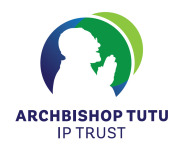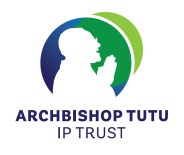
The Truth and Reconciliation Commission
Apartheid sought to dehumanise Black people by reducing them to units of labour to serve white-owned industry in perpetuity. The policy was declared a crime against humanity by the United Nations. After the first democratic election in the country’s history, in 1994, there was a need to reckon with the past and work towards developing a cohesive society. The Truth and Reconciliation Commission began public hearings in 1996. The commission provided a platform for apartheid victims to tell their stories and for perpetrators of human rights violations to apply for amnesty. The commission also made far-reaching recommendations on reparations and redress, most of which were never implemented by the State.

The Truth and Reconciliation Commission
After 350 years of colonial and apartheid rule, the Whites-only government unbanned Black political parties, released political prisoners, and entered into negotiations to shape a democratic future. An interim Constitution was passed to create conditions for the first democratic election and begin to unravel the pain of the past, including a mechanism for the granting of amnesty for perpetrators of human rights violations. The final clause of the Interim Constitution laid the table for the creation of a Truth and Reconciliation Commission. It said: “There is a need for understanding but not for vengeance, a need for reparation but not retaliation, a need for ubuntu but not for victimisation… With this Constitution and these commitments, we, the people of South Africa, open a new chapter in the history of our country.” President Nelson Mandela appointed Archbishop Desmond Tutu to lead the process.
Message given to the Truth and Reconciliation Commission in 1995.
Chairperson of South Africa’s Truth and Reconciliation Commission (TRC) Archbishop Desmond Tutu, with Deputy Chairperson Dr Alex Boraine beside him – and commissioners behind them – at the historic first public hearings of South Africa’s Truth and Reconciliation Commission (TRC), in East London City Hall, in April 1996.
The TRC held public meetings at various venues across South Africa.
The TRC heard amnesty applications by the killers of Chris Hani:
Supporters of the amnesty applications to the Truth and Reconciliation Commission by Janusz Walus and Clive Derby-Lewis, who murdered South African Communist Party leader Chris Hani, make light of a protestor demanding who ordered the assassination, in Benoni in 1996. The Hani family opposed the applications, which were ultimately turned down by the commission. Click to View Asset.
Widow of slain South African Communist Party leader Chris Hani, Ms Limpho Hani (second from left), Advocate George Bizos (middle) and Mrs Winnie Madikizela-Mandela in Benoni in 1996, at the amnesty application to South Africa’s Truth and Reconciliation Commission of Hani’s killers, Janusz Walus and Clive Derby-Lewis. The family opposed the men’s amnesty applications. The commission ultimately denied their applications. Click to View Asset.
… as well as leaders of the apartheid government:
Former South African President FW De Klerk handed over the apartheid ruling party, the National Party’s, submission to chairperson of the Truth and Reconciliation Commission Archbishop Desmond Tutu, at his first appearance before the commission, in Cape Town in August 1996. Click to View Asset.
South Africa’s long-serving apartheid era Minister of Foreign Affairs Pik Botha testifies at the Truth and Reconciliation Commission, sitting in Johannesburg, on 14 October 1997. Botha denied ever having authorized the murder of political opponents but apologized for not having ever investigated torture and murder perpetrated by apartheid security forces. He asked for God’s forgiveness for the immorality of apartheid. Click to View Asset.
Some actors remained unrepentant:
Chairperson of South Africa’s Truth and Reconciliation Commission (TRC) Archbishop Desmond Tutu flew to the Southern Cape town of George in November 1996 in a bid to persuade former President PW Botha to appear voluntarily before the commission. Tutu said that out of respect for Botha's age and health, he would prefer not to have to subpoena him. The commission had earlier heard evidence implicating Botha in the bombing of Khotso House in Johannesburg in the 1980s. Botha ultimately refused to comply with a court order to give evidence to the commission, and was convicted for contempt of court, but the conviction was overturned on appeal. Click to
Dr Wouter Basson, project leader of South Africa’s apartheid era Chemical and Biological Warfare Programme, appears before the post-apartheid state’s Truth and Reconciliation Commission (TRC) in July 1998. At the time, Basson faced an array of criminal charges that ranged from murder and fraud to the manufacture of dependence-producing substances. He refused to apply to the TRC for amnesty, the charges against him were dismissed by the court, and more than 20 years later Basson was reportedly still working as a cardiologist.
View assets, as depcited left to right. Top left, top right, lower right.
… while others showed remorse:
Western Cape anti-apartheid activists Tina Forbes and Yasmina Pandy, the mother and wife of freedom fighter Ashley Forbes, who was brutally tortured and imprisoned on Robben Island, outside the Cape Town offices of South Africa’s Truth and Reconciliation Commission, where one of the alleged police killers of their comrade, Ashley Kriel, was applying for amnesty. The same policeman, Jeff Benzien, was one of Forbes’ torturers.
Note: Benzien was given amnesty. Grim parody of justice may finally be drawing to conclusion for Ashley Kriel. (n.d.). Retrieved October 2, 2023, from https://www.dailymaverick.co.za/article/2022-07-05-grim-parody-justice-finally-drawing-to-conclusion-ashley-kriel/
The TRC has its last hearing on the 21st of March 2003:
Archbishop Desmond Tutu breaks down in tears during the final church service for South Africa’s Truth and Reconciliation Commission, in Pretoria, on Human Rights Day, 21 March 2003. Tutu chaired the commission.
Truth and Reconciliation Commission: address at the handover of the TRC report 6 and 7 at the Union Buildings in Pretoria on 21 March - Human Rights Day, 2003.
Statement by President Nelson Mandela on receiving the report of the Truth and Reconciliation Commission, Pretoria, 29 October 1998
In its final report, the TRC made a number of important recommendations to the government, including prosecutions of perpetrators not granted amnesty, and the establishment of a wealth tax to fund the re-development of the country. Most of the recommendations were not implemented. A deeply disappointed Archbishop Tutu referred to this inaction as the TRC’s unfinished business. Before he died, former President De Klerk’s foundation revealed that there had been a secret agreement between the old and new governments on non-prosecutions…